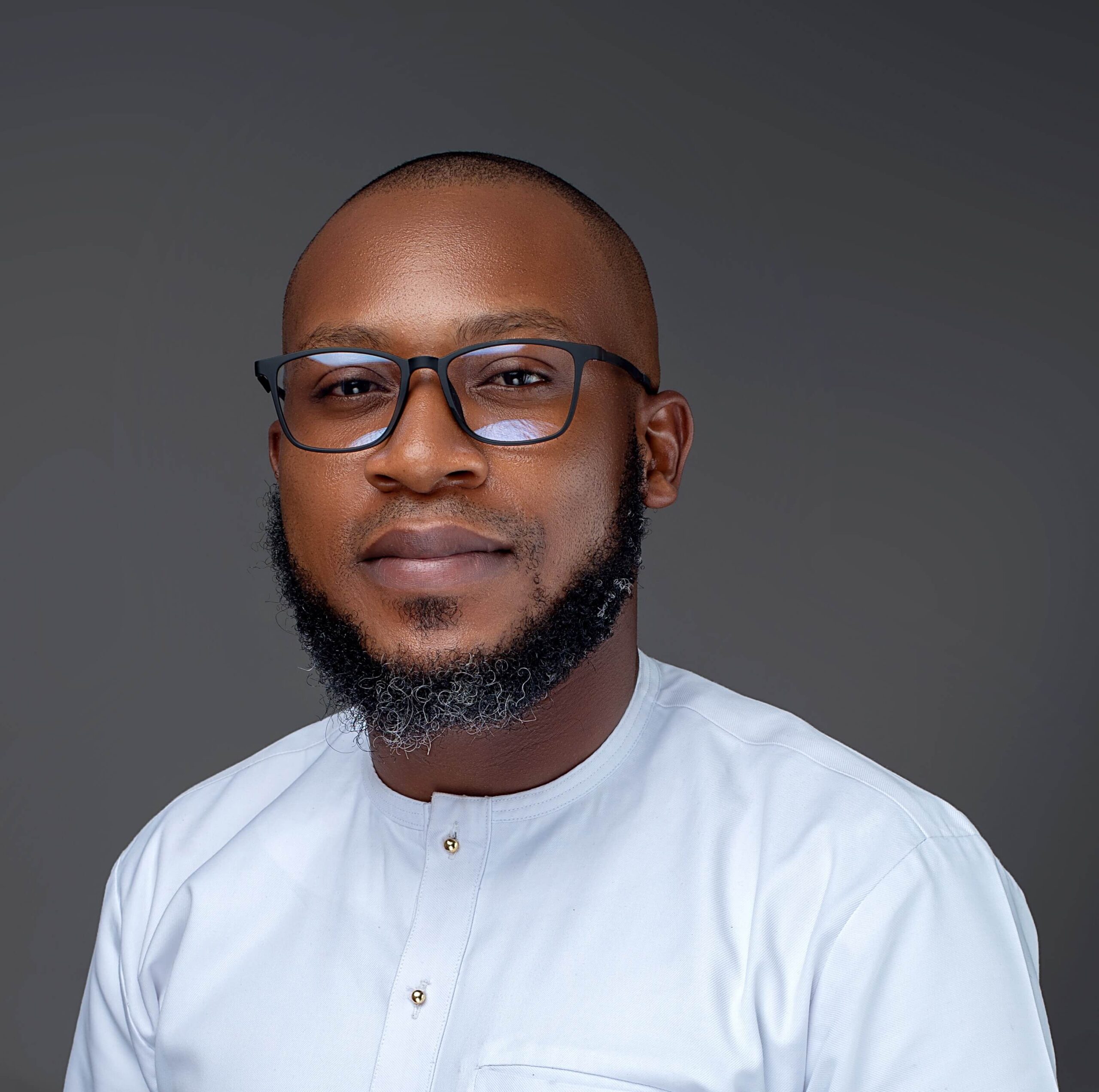The conflicts between pastoralists and farmers in Nigeria have become even more worrisome in recent years. Conflicts, violence, and fatalities linked to the interactions between both groups have escalated and the scope of the incidents is expanding southerly, making the topic – which was hitherto a Northern Nigeria or more specifically, a North Central problem – a national issue. Expectedly, this led to an increase in the need for knowledge production in view of the conflicts: to produce baseline information, fill gaps in literature, and support decision-making and policy formulation.
Research with an impact
The need to carry out doctoral research that is relevant to decision-making and impactful in creating positive change was at the forefront of my inspiration. This, among other factors, inspired my choice of studying the pastoralists-farmers conflicts. I wanted to study the conflicts from a geographic perspective since there was a lack of literature in the field. My passion for geographic exploration also sparked my interest and gave me the confidence to venture into a sensitive topic which required me to visit sensitive areas without fear of the apparent risks involved.
Being from the south of Nigeria, some colleagues and lecturers wondered if my proposed study at the time was too ambitious. They thought it would cost me too much money to achieve and that it would be too risky for me to venture into, considering the potential security risks which may be heightened for a southerner carrying out research in the north. I had spent some time in Northern Nigeria, so I basically had no problem with conducting research that required me to visit, travel through, and interact with people in northern communities. I can only manage a few pleasantries in Hausa but cannot speak the language or any other native dialects of the region. I was an outsider in the region, and this influenced my fieldwork in different ways. I selected Benue and Taraba States which are located in the Mid-Benue Trough for my fieldwork based on the high incidents of conflicts in both states.
Navigating social conflict
In Nigeria’s south, there is a notion that the pastoralists who are mostly of the Fulani tribe have an invasion agenda to conquer the people, take over the lands and convert the Christian population to Islam. There is also an audible north-south divide in the country along ethnic and political lines. These dynamics heightened my outsider effect notwithstanding my familiarity with people and places in the north. While these may have unconsciously influenced my research, my nationalistic nature, having lived, spent time and built relationships in all regions of the country, might have underwhelmed that tendency. I was also intentional about purging myself of popular social biases about both groups to create critical distance between me and my research.
As I prepared for fieldwork, it was obvious that I needed field assistants who were very familiar with my study area. The multi-ethnic nature of the conflict also meant that I needed a local field assistant who could speak Fulani and another who could speak Tiv to support my interviews. I contacted an old family friend who turned out to be very helpful during the entire trip and especially with interviewing Fulani respondents. He was a relative of a Traditional Ruler in Abuja, Nigeria’s Federal Capital Territory and had valuable social capital in the north. I also had to contact a friend who linked me up with his friends in Makurdi, who in turn helped me with contacts within the farming groups.
Adapting to your findings
I designed my survey tool which focused on respondents’ perceptions of the role of climate and land use/ land cover (LULC) change in the occurrence and escalation of the conflicts. As I expected and hoped to achieve, the questions in my guide led to broader discussions surrounding other causes and impacts of the conflicts which were different from the possible ecological factors, which were my primary concerns. The tool for interviewing farmers was different from that of pastoralists and other stakeholders like traditional leaders. My prior knowledge that the farmers were blaming the pastoralists for their ordeals and vice versa no doubt influenced the structure of my questions. I systematically avoided including questions that would trigger the emotions of my respondents to avoid putting myself and my assistants in a situation of suspicion and danger. This may have influenced my findings in a way, but I thought it was necessary.
Ensuring your safety in the field
I set out to the field in February 2020 and my first point of call was Benue State. I could not visit some communities that had recent history of conflicts, either because it was too risky or obliterated, so I compensated for those by meeting victims from the conflicts who were mostly of Tiv ethnicity at an Internally Displaced Persons camp in Ababina, Makurdi. Some kilometres from this camp, on the other side of the Benue River was Agole, a Fulani settlement that I visited after establishing contacts with the community Chief in Makurdi. Meeting respondents of both groups was not overly challenging with the help of my assistants. A major setback however was the communication gap which meant that I could not ask the questions as I would have liked and could not maintain a flow that would have enabled me to probe further into some issues. I also noticed my interpreters struggled with explaining concepts such as climate change and LULC change to the understanding of the respondents. They also probably oversimplified some of the sensitive questions which may have deprived me of some of the depth I needed from their responses.
Maintaining critical distance
A general observation from the respondents (pastoralists and farmers) in Benue State was that of poverty and livelihood deprivation. This was apparent from my observation and also evident from the feedback I got. Their responses were summarized in most cases with appeals for support with resettlement by the farmers who had lost their homes and reintegration by some of the pastoralists who had been stopped from grazing openly in the State. While I was sympathetic to their challenges, especially as they perceived that I could be a voice for their plight as a researcher and an outsider, I endeavoured to maintain the needed critical distance and managed their expectations. The expectations of the respondents pose an ethical problem of how a researcher can manage solicitations for help or how much help a researcher can provide when left with no other option.
In Taraba State, specifically at Gembu, a pastoralist I conversed with was very cooperative but pleaded anonymity. However, I met stonewalls from a few respondents in Ibi, particularly an obliterated community by the highway, some kilometers north of Wukari where violence occurred within the week. At the wrecked community, we were welcomed by a team of policemen at a checkpoint who refused to have a conversation about the event. This irresponsiveness was likely born from the lack of trust in our mission, even though I clearly explained I was a student. In these cases, I was with my assistant but I suppose the challenge was either that we were both perceived as outsiders to the respondent or due to the sensitive nature of the topic – where the violence had just occurred. The scenario of my encounter with traditional leaders such as the Emir of Gashaka was however quite welcoming and hospitable after a proper introduction by my assistant. The hospitability of the Emir, also one of my respondents, who housed me in his Palace for a few days meant that I could only get so much from an interview with him as I could not ask questions that were quite sensitive or seemingly offensive.
To conclude…
In summary, my experience carrying out fieldwork at sensitive places and on a sensitive topic about the conflict between pastoralists and farmers provided mixed reflections and results for me. For instance, because of the sensitivity of the topic, I had expectations of silence from respondents, which happened in some, but not most of the cases. Some of the respondents as well had ‘saviour’ expectations which I could not address. I believe my position as an outsider was helpful, but only after my assistants paved the way for me and got the trust of the respondents. Also, I do not think my position as a southerner studying a problem rooted in the north, which has led to ethnic stereotyping and blaming at a national scale, influenced the feedback I got and the approach to my research. My perception of the problem, people and place, as well as the support from my research assistants, positively influenced the outputs I got from my research.
Reflecting on my fieldwork experience after my PhD and after participating in a “Masterclass on Challenges of Fieldwork: Data Collection in Sensitive Situations” organized by the French Institute for Research in Africa brought to the fore some of the things I would have done differently while planning and during my fieldwork. For example, I may have consciously reflected more on my positionality in the research and study location and how it would influence my outcomes. I also may have designed and administered my survey tool even more effectively without the influence of personal or popular bias. While there is no straight jacket to carrying out research or fieldwork in sensitive situations, it is key for the researcher to reflect on the role of positionality, moral judgment and popular biases on the research outcomes.
In all, the masterclass exposed me further on how best to approach data collection in volatile, delicate and morally engaging topics and places. This knowledge is coming in handy in my current work as a peacebuilder in Nigeria.
Acknowledgement
The author acknowledges the French Institute for Research in Africa (IFRA) for organizing and facilitating the Masterclass on ‘Challenges of Fieldwork: Data Collection in Sensitive Situations’ which inspired this reflective piece. I also appreciate IFRA for reviewing this article.






